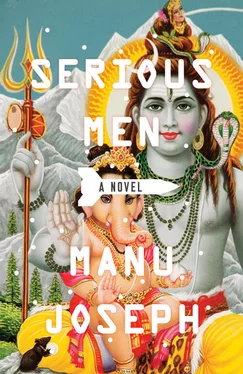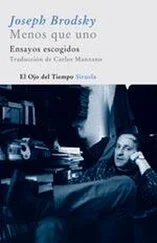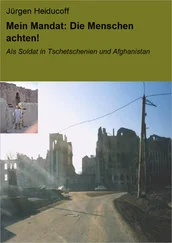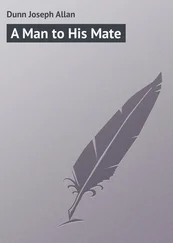Every morning he woke up in the attic, and went to stand in the glow of the morning light, among people and buckets that inched towards the chlorine toilets. He then bathed by the kitchen in the fragrance of tea and soap, and went to work in a melancholy train, stranded inside an unmoving mass of bleak, yawning strangers. All that to come here and bear the austere grandness of the Brahmins and their marvellous incomprehension of the universe, and take phone calls for a man who did not want to be disturbed. And finally to go home in the shadows of rows and rows of large grey tenements and eat in the company of a half-deaf boy who had lost all his ill-gotten glory, and a woman whose only hope was in the delusion of her son’s mythical genius. Then, in the morning, to wake up in the attic, again.
This, Ayyan accepted, was life. It was, in a way, a fortunate life. It would go on and on like this. And one day, very soon in fact, Adi would be an adolescent. An adolescent son of a clerk. A miserable thing to be in this country. He would have to forget all his dreams and tell himself that what he wanted to do was engineering. It’s the only hope, everyone would tell him. Engineering, Adi would realize, is every mother’s advice to her son, a father’s irrevocable decision, a boy’s first foreboding of life. A certainty, like death, that was long decided in the cradle. Sooner or later, he would have to call it his ambition. And to attain it, he would compete with thousands and thousands of boys like him in the only human activity for which Indians had a special talent. Objective-type entrance exams. Very few tests in the world would be tougher than these. So, in the enchanting years of early youth, when the mind is wild, and the limbs are strong, he would not run free by the sea or try to squeeze the growing breasts of wary girls. Instead he would sit like an ascetic in a one-room home and master something called quantitative ability. ‘If three natural numbers are randomly selected from one to hundred then what is the probability that all three are divisible by both two and three?’
He would have to answer this probably in thirty seconds in order to stand any chance against boys who were barely seven when they were fed iron capsules and sample-question papers for this very purpose; who had attended tuitions and memorized all the formulae in the world before they learnt how to masturbate; whose parents whispered into their ears every day of their lives the answer to the decisive question: ‘What do you want to become in life?’ Adi would have to fight them for a sliver of the future that men of God reviled without conviction as the ‘material world’, exactly the place that a father wishes for his son. Adi, despite the misfortunes of poverty, would somehow have to find a way to get into an engineering college. And then ensure that he did not spend a single day of his life as an engineer. Because everyone would tell him then that the real money was in MBA.
And so, even before the engineering course was over, he would start all over again, and prepare to battle thousands and thousands of boys like him in yet more entrance exams. When he finally made it and became a zombie who had entirely forgotten what he really wanted to do with his life, the light-skinned boys in the dormitory would look at him with a sad chuckle and whisper among themselves that he was a beneficiary of a 15 per cent reservation for the Dalits. ‘Lucky bastard,’ they would say.
Ayyan rose from his chair and considered his decision one more time. It was insane what he was about to ask Acharya, but it was less insane than life. One last game, he told himself. One final flutter in his one-room home before they all succumbed to the inevitability of a future he had just seen so clearly.
Acharya was sitting like an emperor, huge hands resting on the arms of his throne, eyes lost in the glow of celestial orbs that probably tilted gently at the honour of being invoked by such a mind.
‘Sir,’ Ayyan said.
Acharya nodded, staring at a vacant wall.
‘I wanted to ask you something.’
‘Ask fast.’
‘My son Adi has been talking a lot about you. Ever since he met you he has gone crazy. He has been talking about the Institute even in his sleep. He wants to get admission into the Institute.’
Acharya nodded faster now, growing impatient already. ‘You had told him that he should take the Joint Entrance Test,’ Ayyan said. ‘I know, Sir, it was just a joke but he has taken it very seriously. He says he wants to take the test.’
‘He should then,’ Acharya said.
‘This year, he wants to take it.’
‘In April?’
‘Yes, Sir.’
‘Are you crazy?’
‘I know it sounds like that, Sir. But he says he will pass the test.’
‘And what does he want to do after he passes the test?’
‘Maths, I think.’
‘He said that?’
‘Yes.’
‘Ayyan, are you seriously suggesting that I allow a ten-year-old boy to take the JET?’
‘He is eleven, Sir.’
‘It’s still crazy.’
‘It’s entirely your decision, Sir.’
‘He might be an exceptional boy, Ayyan, but ten thousand not-very-dumb graduates take the test. Only a hundred make it.’
‘I know, Sir. I just thought I would ask. I also know that, according to the rules, a candidate has to be at least a graduate to qualify for the exam.’
‘Forget the rules. It’s just that I find it ridiculous that a boy of eleven should be allowed to take the test.’
‘I thought I would ask because he is so keen.’
‘No way,’ Acharya said, a bit amused now at the thought of a little boy having a shot at the Institute’s entrance exam. ‘The Joint Entrance Test is not some joke meant to entertain a boy,’ he said.
‘I know what you mean, Sir.’
‘And what’s wrong with the coffee these days? It tastes chemical.’
‘I will ask the peons to be careful, Sir.’
As Ayyan was about to leave, Acharya said, ‘Wait.’ He toyed with the meteorite paperweight and appeared to consult his reasonable conscience. He asked, in a soft voice, ‘The boy will be disappointed?’
‘That’s all right, Sir.’
‘That, of course, is all right with me too. What I asked was, will he be upset?’
‘A bit, Sir, but that’s all right.’
‘I’ll write a letter to him personally explaining why he cannot take the test. I will write to him saying that he is too young to take the test. OK?’
‘Thank you so much, Sir.’
‘So don’t break the bad news to him now,’ Acharya said in a soft conspiratorial tone, ‘Wait until I give you the letter. You understand?’
‘Yes, Sir.’
Ayyan went back to his desk and exhaled. He had thought that the maverick mind of Acharya might see the charm in a little boy asking for a chance, but the absurdity of his request had just sunk in and he felt a bit foolish. In fact, Ayyan did not really want Adi to take the test. The boy, obviously, would not have the faintest hope of passing it. What he wanted was the news of the juvenile being allowed to attempt one of the toughest tests in the country to travel for a day in the newspapers, and probably on the television channels, and create one last festive commotion in his home and in the toilet queues.
The Joint Entrance Test (also called JET) exuded the terror of an excruciatingly selective screening process. But it also had the peculiar aura of art. It was a three-hour, objective-type test that carried about a hundred questions, broadly divided into physics, chemistry and maths.
Of the ten thousand candidates who sat the JET every year, two hundred would be shortlisted for interviews, half of them fated to make it — fifty in the postgraduate courses and fifty in research positions. How the JET question-paper was set, how it was printed, stored and eventually distributed to the exam centres, was a closely guarded secret known only to the old hands. Ayyan knew some bits of the secret. He even knew how to make a small hole in the fortress of security systems that were built around the question-paper. The weak brick in the otherwise impenetrable walls was, improbably, a modest bill-file stored in a lockless steel cupboard in the accounts department. Unknowingly, Ayyan began to doodle the ramparts of a fort on his scribbling-pad and then the images of a siege. Finally, he drew a crow flying away from the fort holding something in its beak. A phone rang on his table, and he was shaken out of his daydream. As he took the call, he wondered why he was thinking of the JET question-paper.
Читать дальше












